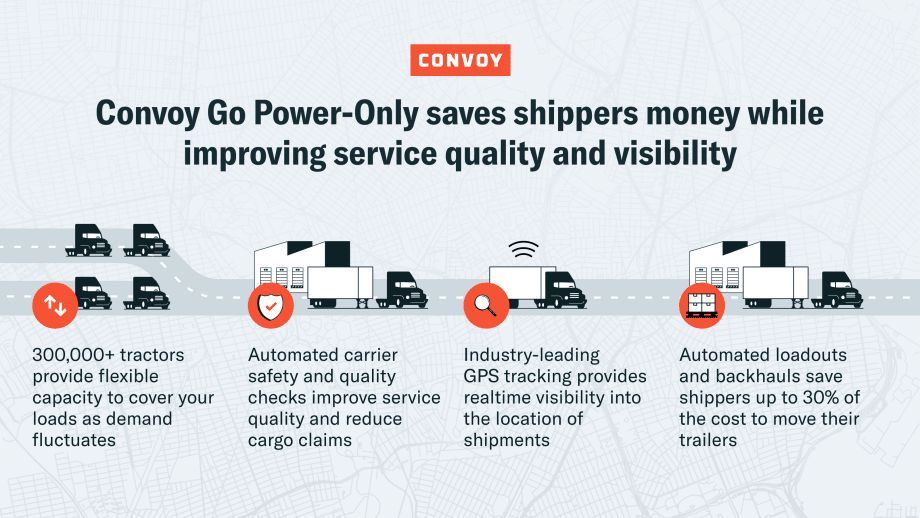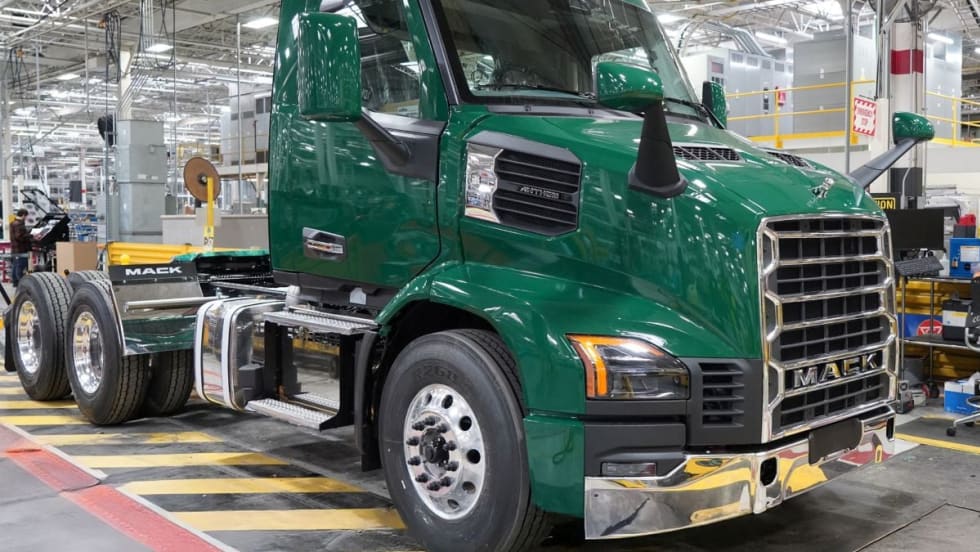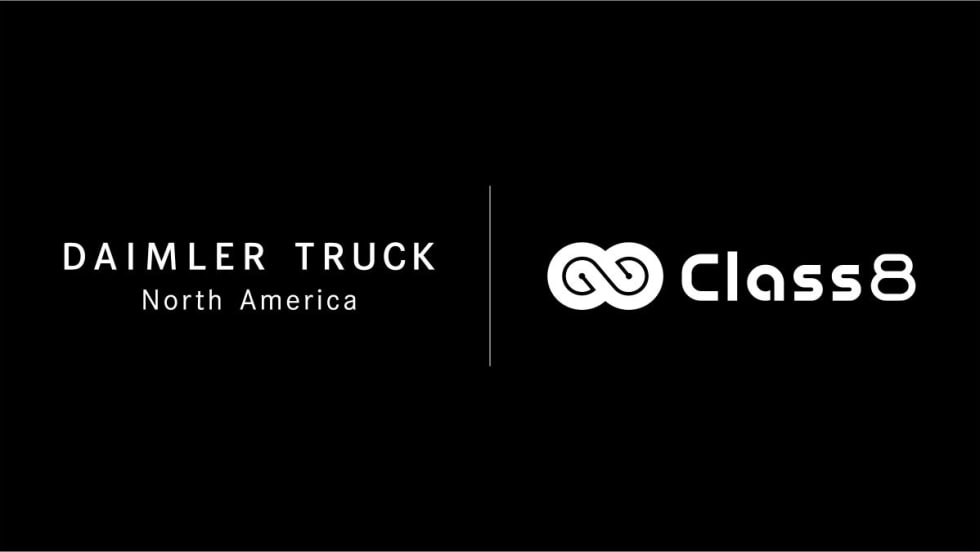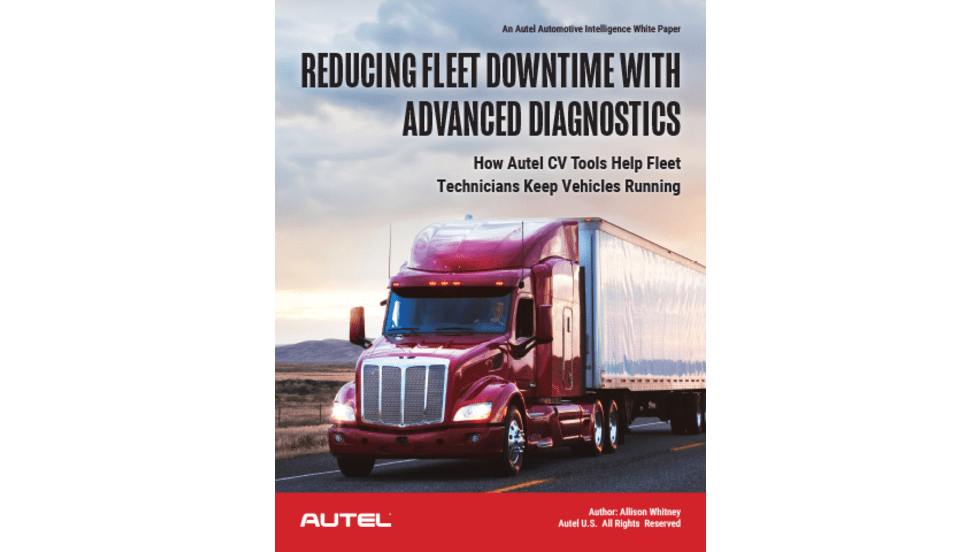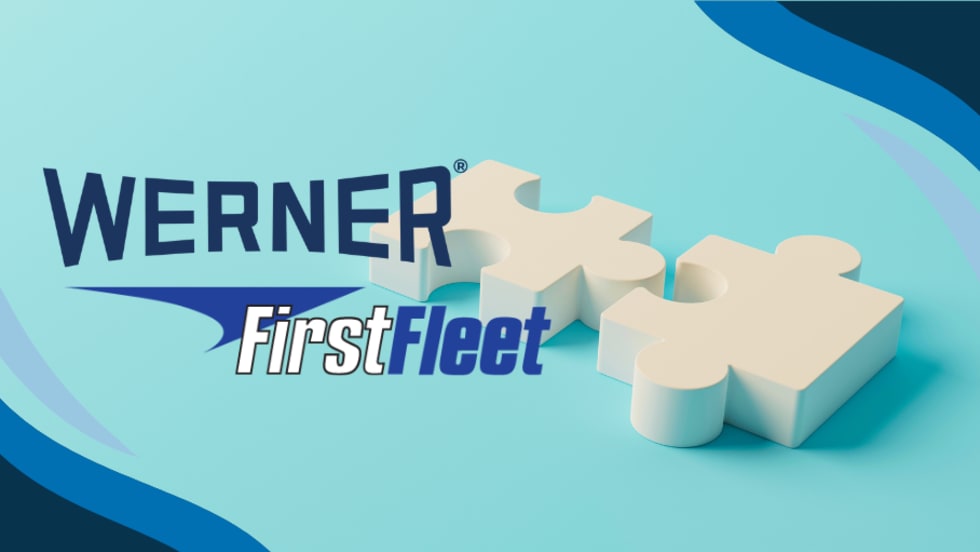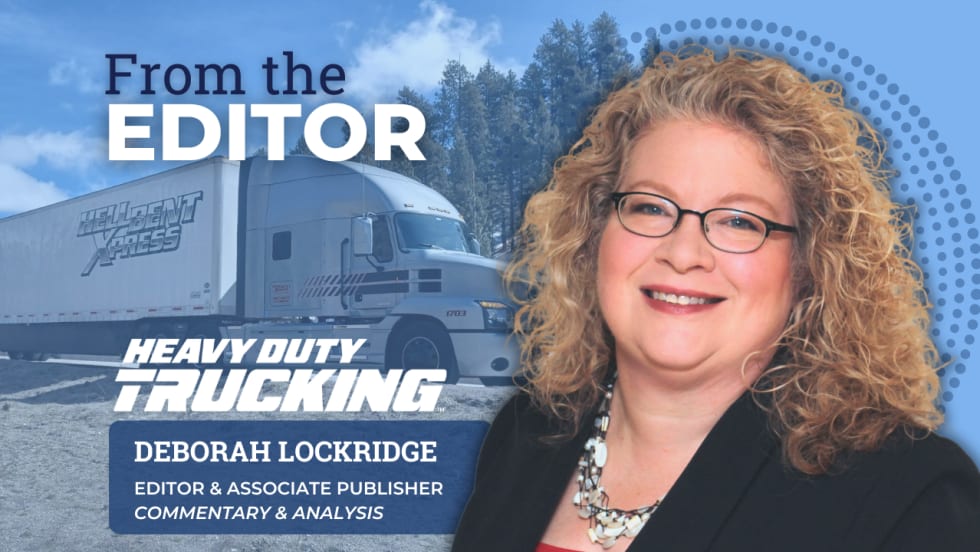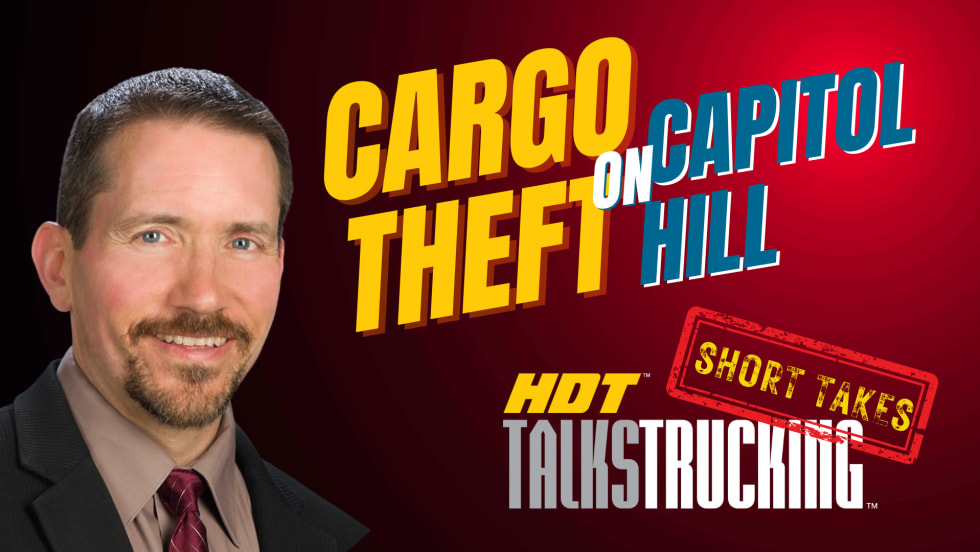Convoy is making it easier for private fleets to access nationwide power-only capacity to haul preloaded and empty dry van trailers.
The digital freight network’s latest power-only service is part of its Convoy Go program. With a network of more than 300,000 tractors, Convoy says it now offers the largest on-demand fleet of power units on the market.
Through the use of machine learning across Convoy’s shipper network, backhauls and loadouts (when an empty trailer is filled with a live load) for trailer moves can be automatically identified, reducing shipping costs while eliminating empty miles.
Convoy estimates that shippers spend billions of dollars each year on empty trailer moves. Convoy’s power-only freight service can save up to 30% of the cost for these trailer moves, while also helping carriers maximize asset utilization and earn more money.
Private fleets currently account for more than half a million trailers in the United States, Convoy noted. There is a constant need to haul them from one location to another — either loaded with freight that needs to be delivered, or empty in cases where the trailer is being repositioned for its next load. In the last decade, the need to haul these trailers has only increased, as online commerce and supply chains require more short-haul, rapid-response fulfillment.
However, the process of moving trailers is highly inefficient and costly. With a 4:1 trailer-to-tractor ratio among private fleets, many shippers operate with a shortfall of power units and drivers. When demand surges, these shippers often have to rely on the spot market.
Over the last three years, Convoy has developed its own drop-and-hook service called Convoy Go, providing shippers with power-only tractors and a fleet of several thousand trailers. It also allows smaller carriers to take advantage of power-only opportunities.
Now the company has expanded the capabilities of Convoy Go, providing power-only capacity to haul private fleet trailers. Convoy supplements the private fleet’s existing tractor capacity to more efficiently rebalance trailer pools and deliver preloaded trailers.
This service is built on machine learning models that predict trailer demand weeks in advance and intelligently reroute trailers to facilities where they’re needed. This eliminates the costs of spillover to the live spot market when drop-and-hook demand increases and minimizes trailer underutilization when demand recedes.




